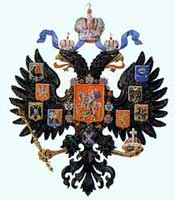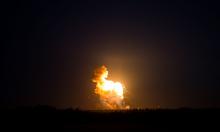The myth of the Commonwealth of Independent States is about to end
The collapsing system of post-Soviet states cannot destroy Russia
Recent revolutions in Georgia, Ukraine, Kyrgyzstan and current massive actions of protests in other post-Soviet republics, such as Ingushetia, Belarus and Kazakhstan, have already proved that the Russian administration should bid farewell to any type of state unions within the scope of the former USSR. One may say that Russia is witnessing the second stage of the imperial collapse, at which the center of the empire and its former satellites are becoming independent states, choosing their own ways of development. 
Russia has lost its “eternal Slavic neighbor,” Ukraine, it has no support in Central Asia either. Ukraine, however, is determine to make its way to Europe, but will never stop being either the geographical neighbor or the most important commercial partner for Russia. Asian states are not likely to decline the intervention of the Russian private capital, if it ever occurs.
The legalization of the break-up of the Soviet Union gave birth to two new notions in the Russian political vocabulary - far-foreign and near-foreign states. The myth of near-foreign states is living out its days now. It is not ruled out, though, that it has already disappeared: there is just Russia and foreign states. Even Belarus, a member of the Unified State, which has been one of Russia's staunchest allies for many years, does not listen to Russia's opinion in political or economic questions.
The new political reality, however, is not to be viewed as humiliating or defeating for Russia. On the contrary, Russia has a unique chance to concentrate on its internal problems, find a national identity in its borders and present itself as a normally developing self-sufficient state without any imperialistic needs.
Russia has a very important goal to pursue at this point. The question is connected with the countries, which have never been included in the USSR. Russia is currently facing the demographic danger: the lack of population becomes more and more catastrophic every year. If Russia becomes a wealthier and a more attractive state for its former Soviet Union partners, it might become the center of massive migration from the countries of the former USSR, like it happened in the 1990s of the past century. In addition, the economic competition for the population of the former Soviet republics, including the Russian-speaking part of it, would become a worthy addition to the imperishable imperial complex of the Russian society.
Russia is becoming a usual large country between Europe and Asia. Like Ukraine, Georgia, Moldova and Kyrgyzstan, Russia will have to find its place in the new world order. It goes without saying that it is psychologically unpleasant to lose the status of the center. The adequate perception of the surrounding world is Russia's only chance to find the proper orientation in time and space and not to straggle again in the future.
At the end of the day, Russia is not the first country to experience this situation. Greece, Italy, Great Britain and Turkey used to have the great imperial ambition before as well. However, these states managed to adjust themselves to the status of independent, self-sufficient countries. The power of the state does not depend on its size – the economic strength and the cultural potential is much more relevant at this point.
Subscribe to Pravda.Ru Telegram channel, Facebook, RSS!




